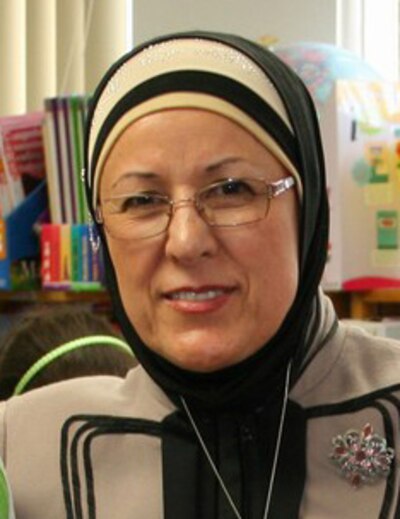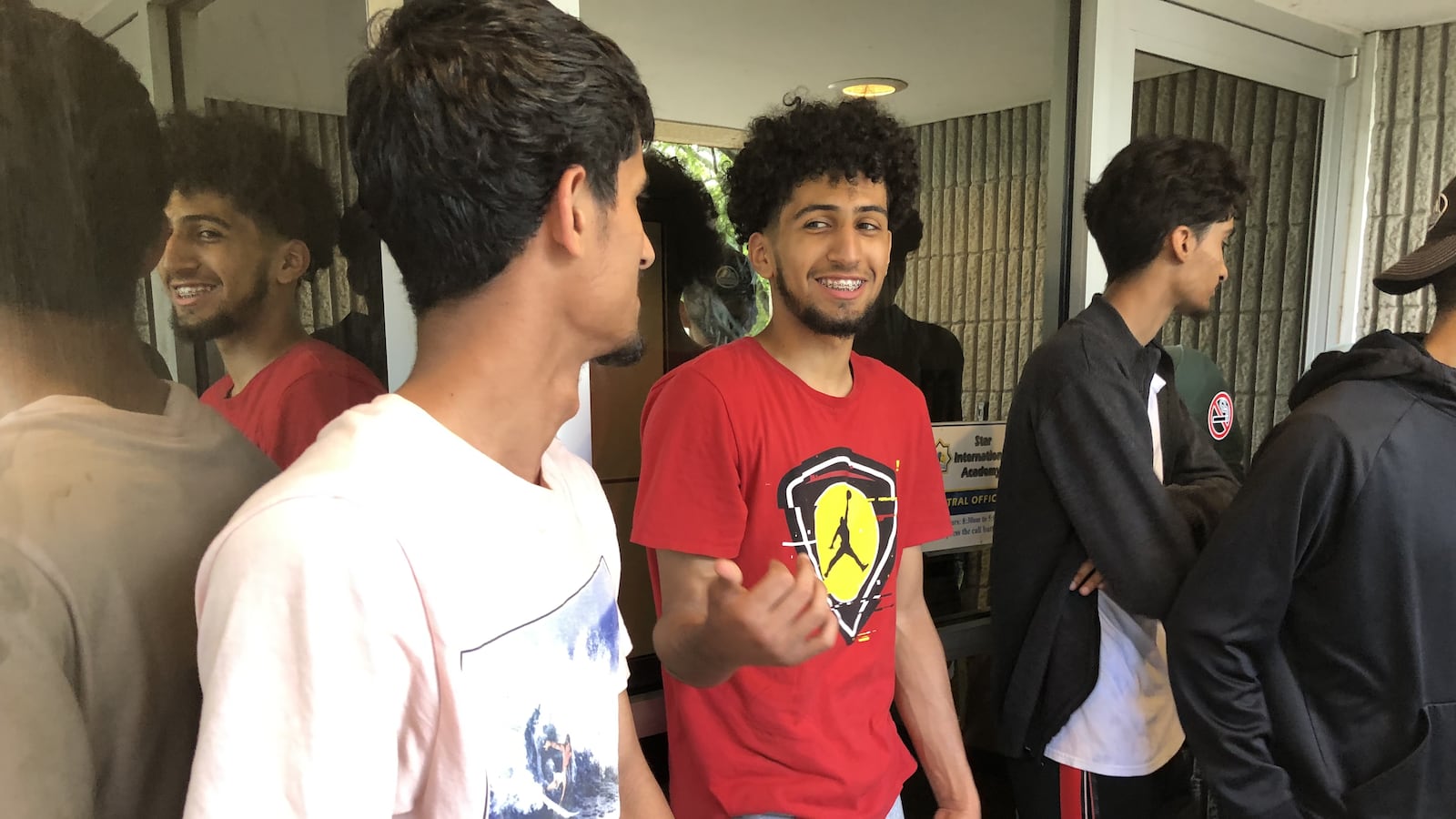A piece of certified mail arrived for Tuhfa Kasem this week. Kasem hoped the envelope contained her long-awaited high school diploma.
What she found instead seemed to her like a threat.
Kasem, one of the top students at Universal Academy, surprised school administrators by delivering a graduation speech in May that criticized the school.
Nearly two months after her speech went viral, an official from Hamadeh Educational Services, the company that manages the school, wrote to Kasem and Zainab Altalaqani, who delivered a similar speech, that they had committed acts “of dishonesty and deceit.” The letters ask the students to meet with administrators, noting that they “have every right to bring an attorney.”

Nawal Hamadeh, head of Hamadeh Educational Services, has hired a lawyer to investigate the incident.
“I was waiting for a diploma but instead I got that,” said Kasem. She said Hamadeh “is trying to make us out to be so much more evil than we were.”
The students say they’re being targeted for putting a spotlight on problems at their school, which sits on the western edge of Detroit. In their speeches they argued that the school employs too many long-term substitutes, and raised concerns that students face punishment or retaliation if they speak up.
Hamadeh says the charges are baseless, and appears convinced that the students were influenced by political opponents of charter schools.
Kasem and Altalaqani don’t need their diplomas to start classes at Wayne State University in the fall, as planned. After a delay, they received official transcripts earlier this month, which confirm them as official high school graduates.
Still, Hamadeh says Kasem and Altalaqani, both school salutatorians whose off-script commencement speeches went viral, won’t be able to receive diplomas until they meet “certain requirements,” which she would not name.
By withholding the diplomas — the official documents that might one day hang in a frame on the students’ walls — Hamadeh wants to hold the students accountable for what she views as an unfair smear.
In an interview this week, Hamadeh, who is the superintendent of Universal and three other charter schools, insists she is not out to get the students. But she said she does want them to be held accountable.
“I’m like a mother, but when they talk to me, I expect them to be respectful,” Hamadeh said.
It is not clear which law has been broken, if any, though Hamadeh says the students broke school rules by veering from their pre-approved graduation speeches.
She said she did not hire a lawyer with the intention of suing two of her best students. The lawyer, she says, is for the adults — a nebulous group of anti-charter school advocates who she believes are behind the students’ decisions to very publicly criticize Universal Academy in graduation speeches in May.
“We believe there’s more to the story than the girls,” she said. “We believe there are other adults involved. It’s still under investigation.”
The students, along with some classmates from Universal, have spent time this summer working with 482Forward, an education advocacy group that helps students organize for change in their schools. Adult organizers from 482Forward were on hand earlier this month when Kasem and her peers gathered at Universal’s headquarters to protest what they characterized as a retaliation for the graduation speeches.
Hamadeh would not say whether the adults who concerned her were connected to 482Forward.
“There are a lot of adults who are supporting students to organize to improve their schools,” said Molly Sweeney, an organizer for 482Forwrard. “That’s not a secret.”
The news that Hamadeh had retained a lawyer after the speeches was terrifying for her former students.
“Here you have kids who are going off to college, but then you want to drag them into a legal battle?” Altalaqani said. “We just wanted our diploma.”
This fear is misplaced, Hamadeh said.
“We don’t want to scare our kids,” she said. “We want to make sure our kids are moving in the right direction. We worked too hard for them for us to be thought of as wanting to hurt them.”
Still, the letter makes clear that the speeches are far from forgiven.
“We recognize the great achievement you have attained, but your actions stated above cannot be sanctioned or ignored,” the letter says. “In conclusion, with respect to release of your diploma, we offer to discuss options with you and your parents to address this serious matter. You have every right to bring an attorney with you.”
Hamadeh pointed out that she personally funds the school’s scholarship program, spending $20,000 a year to help her students attend college. This year’s recipients of the $1,000 scholarship include the salutatorians. The students said they’ve received the money in spite of the ongoing conflict.
For their part, the students say they hope the episode will spark a deeper conversation about their school’s culture.
“There’s a lack of voice,” Altalaqani said. “Teachers, students, won’t really speak up because of this fear of retaliation, fear that students will get suspended.”
Media coverage of the graduation speeches offended Hamadeh — it seemed to her negatively slanted — and she said she would take legal steps to protect the school’s reputation against unfounded attacks, even ones from students.
“I’m not planning to sue them,” she said. “But if they bash…”
She paused.
“They’d better not. I’m sorry. The school has a right to be protected.”

